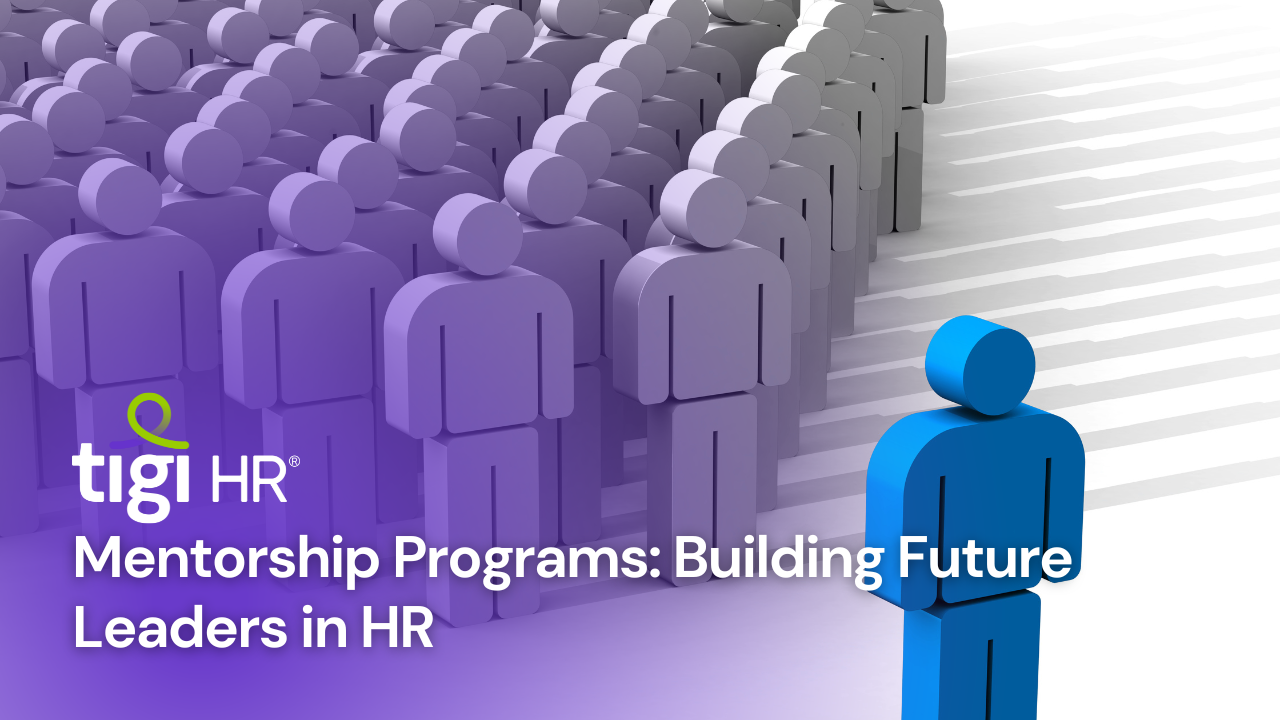In the dynamic world of Human Resources (HR), mentorship programs have emerged as a vital tool for fostering the growth of future HR leaders. These programs provide a unique platform for knowledge transfer, skill development, and career progression. In this article, we will explore the significance of mentorship programs in shaping the HR leaders of tomorrow.
The HR Landscape Today:
The HR landscape is constantly evolving, with rapid technological advancements and shifting workplace dynamics. Today’s HR professionals face complex challenges, including talent acquisition, diversity and inclusion, employee well-being, and data-driven decision-making. To thrive in this environment, aspiring HR leaders need guidance and support, which mentorship programs can readily provide.
Understanding Mentorship in HR:
Mentorship in HR goes beyond traditional apprenticeships. It is a strategic partnership between an experienced HR professional (the mentor) and a less-experienced individual (the mentee). The mentor offers guidance, shares knowledge, and helps the mentee develop the skills necessary to excel in HR roles.
The Benefits of Mentorship Programs:
Knowledge Transfer:
One of the primary advantages of mentorship programs is knowledge transfer. Experienced HR leaders possess valuable insights into best practices, industry trends, and regulatory changes. By working closely with a mentor, aspiring HR professionals can tap into this wealth of knowledge, accelerating their learning curve.
Skill Development:
HR is a multifaceted field that requires a diverse skill set. Mentorship programs enable mentees to acquire and refine essential skills such as conflict resolution, communication, leadership, and data analysis. These skills are crucial for success in HR roles.
Career Advancement:
Mentorship programs often open doors for career advancement. Mentors can provide guidance on career planning, identify growth opportunities, and offer recommendations that can propel mentees into leadership positions within HR departments.
Networking Opportunities:
Building a strong professional network is vital in HR. Mentees benefit from their mentor’s connections and gain exposure to influential figures within the industry. This networking can lead to new job opportunities, collaborations, and partnerships.
Designing Effective Mentorship Programs:
To ensure the success of mentorship programs in HR, organizations must implement them effectively. Here are some key steps:
Clear Objectives: Define the program’s objectives and expectations for both mentors and mentees. This clarity ensures that participants understand their roles and responsibilities.
Matching: Carefully match mentors and mentees based on their goals, experiences, and personalities. A good match can foster a more productive and meaningful mentoring relationship.
Training: Provide mentorship training for both mentors and mentees. This training equips them with the skills and knowledge needed to navigate the mentoring process effectively.
Regular Feedback: Encourage regular feedback from both mentors and mentees to evaluate the program’s effectiveness and make necessary improvements.
SEO-Friendly Practices:
To make this article SEO-friendly, we can integrate relevant keywords, such as “HR mentorship programs,” “HR leadership development,” and “future HR leaders,” into the text organically. Additionally, optimizing the meta title, meta description, and using subheadings can enhance its search engine visibility.
Conclusion on Mentorship Programs:
Mentorship programs are the cornerstone of building future leaders in HR. They provide a structured pathway for knowledge transfer, skill development, and career advancement. In today’s ever-evolving HR landscape, organizations that invest in mentorship programs are not only nurturing their talent but also securing their place as leaders in the industry. As we look to the future, it’s clear that mentorship will continue to play a pivotal role in shaping the HR leaders of tomorrow.
We are hiring for Golang Developer!
Join our team as a talented Golang Developer, responsible for designing and developing scalable software solutions using the Go programming language. Collaborate with cross-functional teams, write clean code, and ensure high-quality deliverables. Stay up to date with the latest Go developments, troubleshoot issues, and optimize application performance. If you have a passion for Go development and enjoy working on challenging projects, apply now to make a significant impact in our innovative environment.
Find trusted recruitment agencies : Click here





